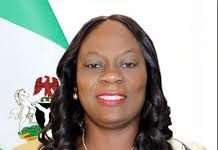
Experts have called on governments at all tiers to fully commit to the healthcare sector in order to achieve Universal Health Coverage for all Nigerians.
The appeal was made on Friday in Ilorin during the 2023 World Health Day celebration, organised by the University of Ilorin Teaching Hospital.
The National Health Insurance Authority, Zonal Coordinator, North Central A Zonal office, Mr. Adelaja Abereoran, noted that UHC advocates a holistic approach to health and takes into consideration other determinants of health beyond healthcare.
According to him, there are social determinants of health which include water, sanitation, education, agriculture, culture and religion.
He noted that the issue of qualitative health should focus on access to facilities and to financial risk protection, through health insurance and the promotion of healthy living.
Abereoran noted that to achieve health for all, there was need for equity in access to health services and that everyone who needs services should get them, not only those who can afford for them.
He said, “The quality of health services should be good enough to improve the health of those receiving services; and people should be protected against financial risk, ensuring financial harm.”
He described health insurance as a system of advanced financing of medical expenses through contributions, or premiums paid into a common fund or pool, to pay for all or part of specified health services (usually referred to as benefit package).
The NHIA boss said it is important for national, regional governments as well as partners and healthcare institutions to take proactive measures in prioritising health.
“Universal Health Coverage is achievable by 2030 given appropriate legislations, implementation of policies, programmes and collaborative partnerships among stakeholders.
“The NHIA will continue to promote health insurance and put in place programmes that will facilitate the goal of health for all now and always until Nigeria fully achieves Universal Health Coverage,” he said.
A Consultant Paediatrician, Prof. Omotayo Olukemi, UITH, pointed out the need for equity for all in accessing healthcare, especially for maternal and newborn care.
According to her, people should not be exposed to financial risks while accessing healthcare.
She lamented that it had become a common occurrence for people to resort to selling their personal properties to access healthcare in Nigeria, due to lack of financial security.
She, however, tasked everyone to contribute towards achieving UHC, adding that this can be through taxation, insurance and Medical Savings Account, among others.
On her part, a Consultant Public Health Physician of the Department of Epidemiology, UITH, Dr. Mariam Jimoh, recalled the history of healthcare services during the pre-colonial period, where traditional medicine was the system of healthcare delivery in communities.
She observed that during pre-colonial era, at the time of the slave trade, the introduction of limited facilities for medical care for staff was compelled.
Dr. Jimoh said, “Throughout this period, medical care facilities were available only on board the slave ships. The slave traders never ventured inland beyond the coastal areas.
“A significant adverse consequence of the slave trade was the two-way trans-continental spread of infectious diseases with dire consequences in most cases.”
She noted that in contemporary times, the National Health Service was established to provide easy access to healthcare for all Nigerians at an affordable cost through various prepayment mechanisms.
Dr. Jimoh said the ultimate objective is to ensure the achievement of UHC for all Nigerians.
The expert, however, observed that the scheme covers only about 10 per cent of Nigerians, adding that this left the most vulnerable population at the mercy of healthcare services that are not affordable.
“Though Nigeria has made progress in the development of the health sector, however, a lot still needs to be done,” she added.
The expert called for political will on the part of the government to implement policies and strategies already developed, and to also increase funding through an increase in budgetary allocation for health.
Earlier, the Chief Resident of the Department of Epidemiology and Community Health, Dr. Rhoda Aibinuomo, explained that the theme for this year’s WHD, was apt as it emphasised health for all.
She noted that the programme afforded the opportunity to look back at the success that had been achieved in the public health field in the last 70 years.
“This has led to improvement in the quality of life, but a lot still has to be done if the goal of health for all must be attained,” Dr. Aibinuomo said.










